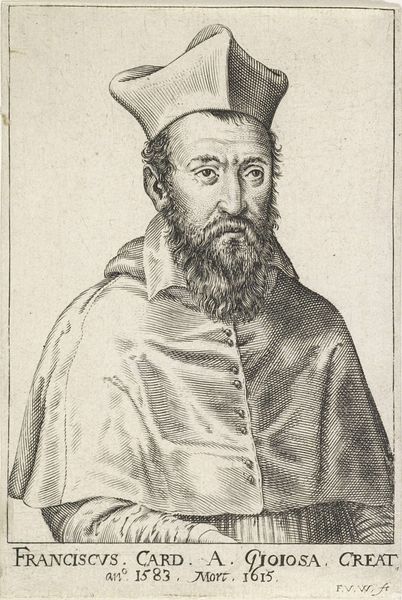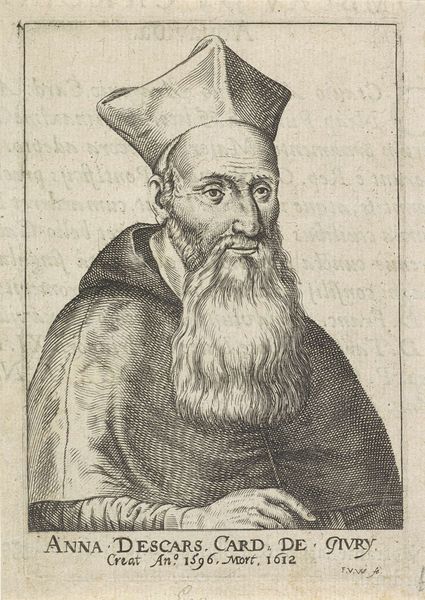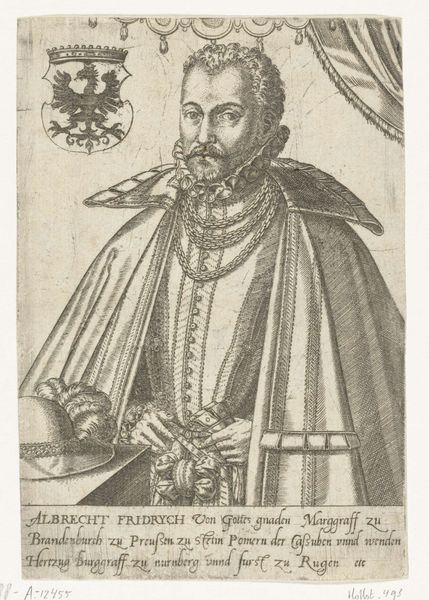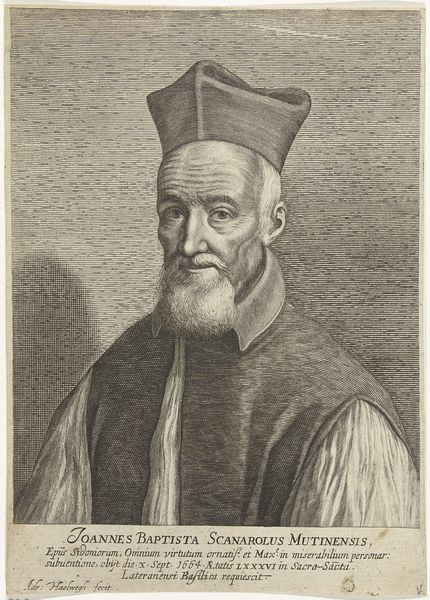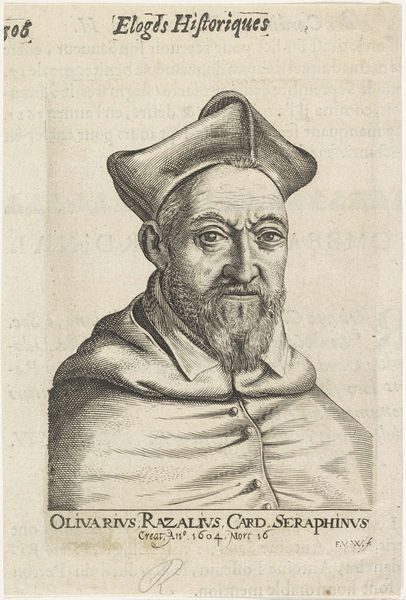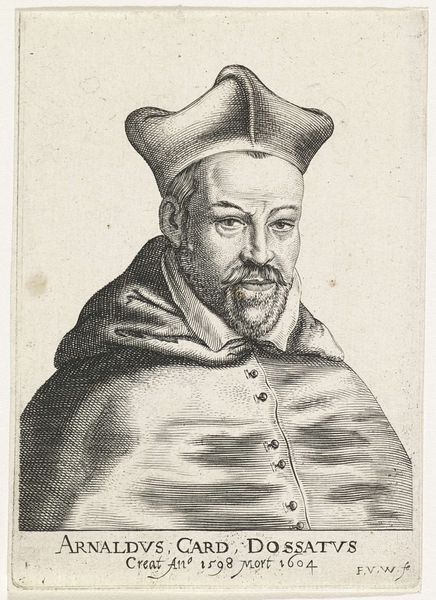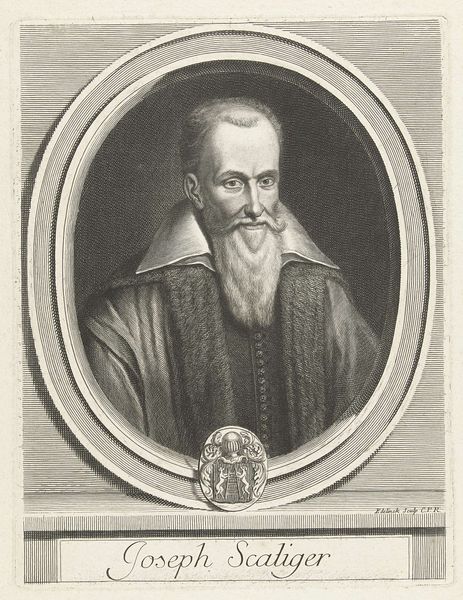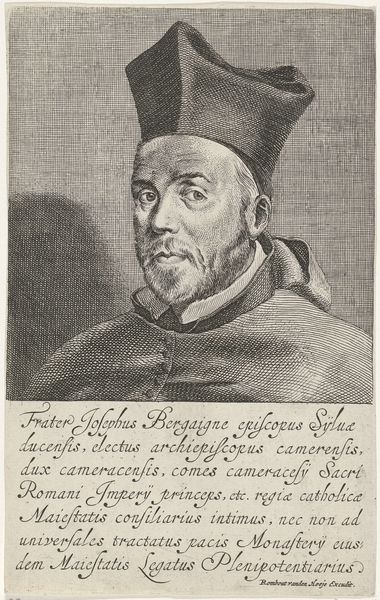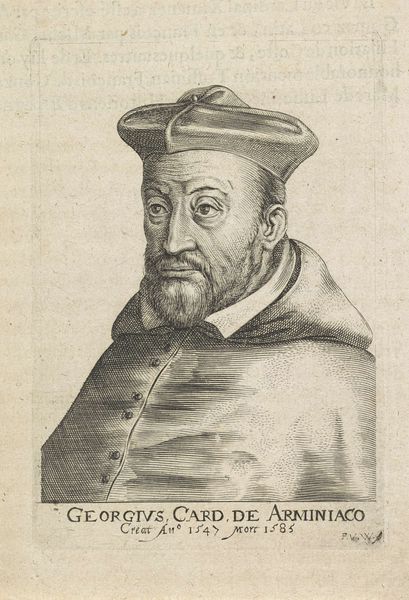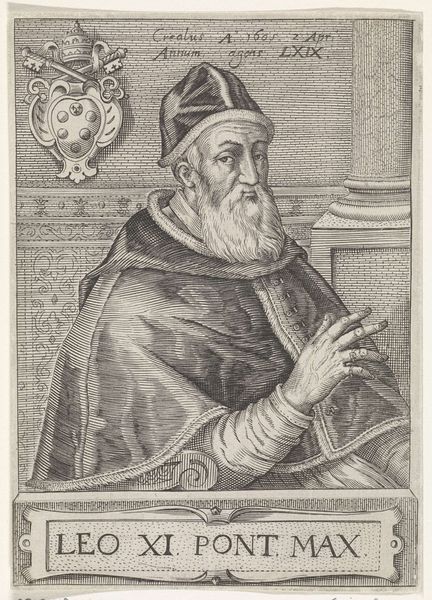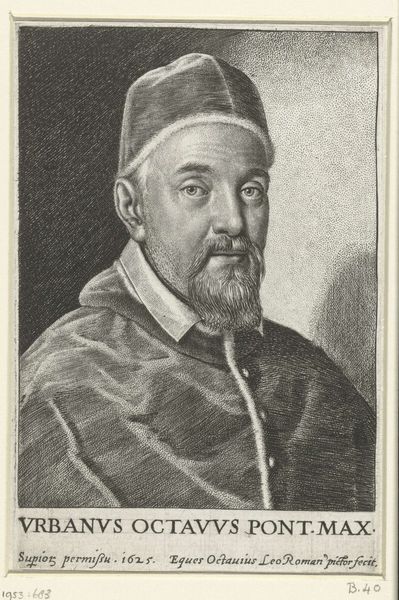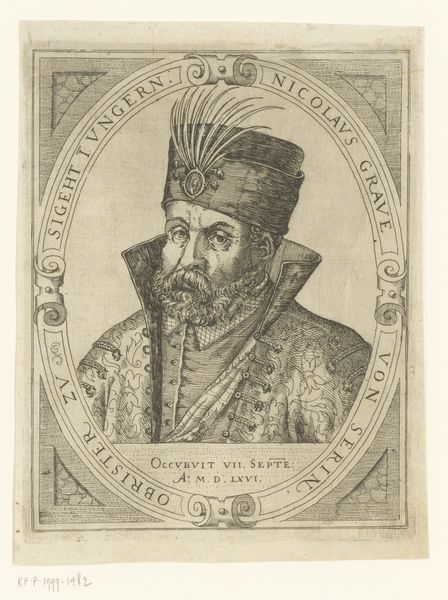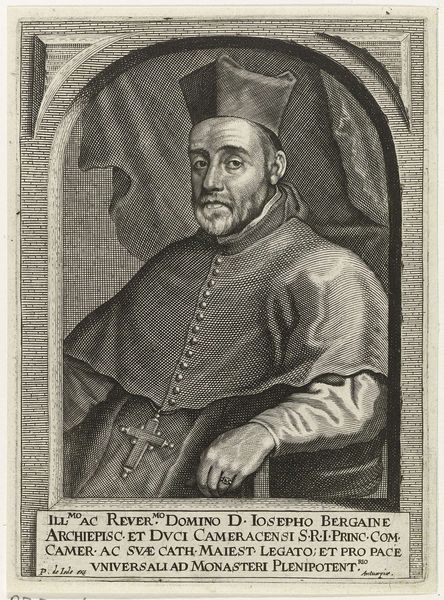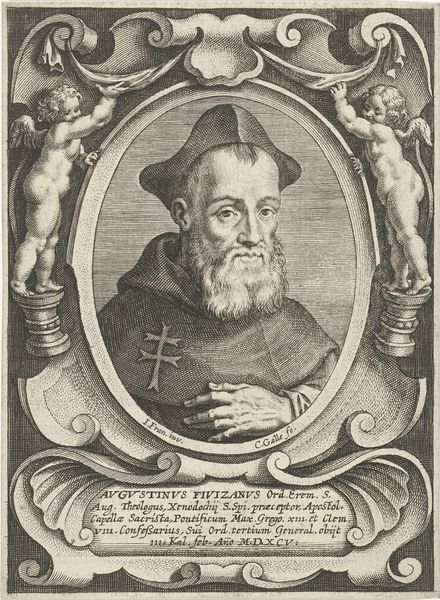
print, engraving
#
portrait
#
baroque
# print
#
history-painting
#
engraving
Dimensions: height 132 mm, width 90 mm
Copyright: Rijks Museum: Open Domain
This portrait of French Cardinal François de Joyeuse was made by Frans van den Wijngaerde, likely in the mid-17th century, using engraving. This process involves cutting lines into a metal plate, inking the surface, and then using pressure to transfer the ink onto paper. The precision of engraving allowed van den Wijngaerde to capture fine details of the Cardinal’s face and vestments. Notice how the carefully placed lines create a sense of depth and texture, from the fabric of his robes to the lines in his face. Engraving was a skilled trade, demanding years of apprenticeship. The resulting prints like this one could be reproduced in multiples, making images more widely accessible in society and fueling the demand for skilled printmakers. This artwork reminds us that even seemingly straightforward portraits involved a complex interplay of labor, skill, and the circulation of images in society. Paying attention to these material aspects deepens our appreciation of its historical and cultural significance.
Comments
No comments
Be the first to comment and join the conversation on the ultimate creative platform.
